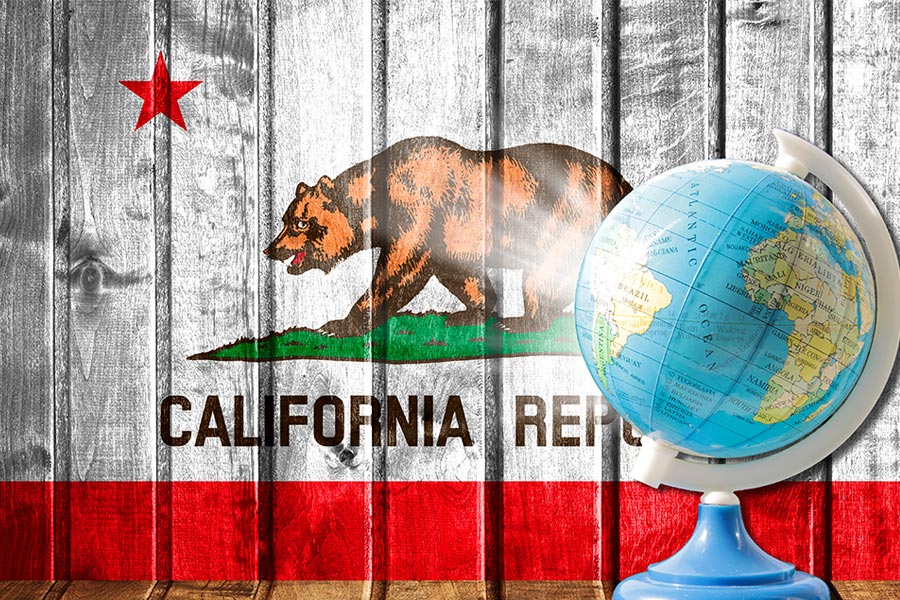California Economic Nexus Changes and Marketplace Facilitator Law

California’s Marketplace Facilitator Act, AB 147, has changed California’s economic nexus law to a $500,000 threshold and enacted a new law classifying marketplace facilitators as the retail seller of all sales they facilitate for a marketplace seller. The new law, enacted April 25, 2019, simplifies California’s sales tax scheme, exempting small businesses and shifting the burden of collecting and remitting on larger marketplace facilitators rather than marketplace sellers.
Economic Nexus Changes
Previously, California issued the California Department of Tax and Fee Administration’s Special Notice L-565 which mirrored the economic nexus threshold of South Dakota in the Wayfair case at $100,000 in gross sales or 200 or more separate transactions made within a calendar year. The notice was effective April 1, 2019, resulting in retailers across the country registering to be compliant as of that date.
Now, under the new law, if a retailer has total combined sales of tangible personal property for delivery into California that exceed $500,000 within the preceding or current calendar year, they are considered to be engaged in business in the state of California and are required to register to collect and remit tax accordingly.
Marketplace Facilitator Act
California’s new Marketplace Facilitator Act follows the recent trend amongst states to shift the collection burden from individual sellers to large marketplace facilitators. Jumping on the bandwagon, California now classifies marketplace facilitators as the retailers of the transactions that they facilitate between marketplace customers and marketplace sellers. Therefore, marketplace facilitators that meet the economic nexus threshold of $500,000 in cumulative sales in the preceding or current year must register to collect and remit California sales tax. In the calculation of cumulative sales, California requires marketplace facilitators to include sales of tangible personal property made on their own behalf as well as sales of tangible personal property facilitated on the behalf of marketplace sellers.
For example, an Amazon FBA seller no longer is responsible for the sales it makes to its customers through Amazon. Instead, as the marketplace facilitator, Amazon itself is considered the retailer and therefore is obligated to collect and remit the tax on the transaction. With the requirement that a marketplace facilitator’s own sales be added to those sales it facilitates for marketplace sellers, the $500,000 economic threshold can easily be surpassed by even a small marketplace facilitator.
Meanwhile, marketplace sellers may still need to register if they make sales outside of the marketplace and their total sales surpass California’s $500,000 economic threshold. Therefore, it is vital for marketplace sellers to keep detailed records of their sales and which marketplace facilitators, if any, participated in each transaction. The marketplace is only liable for tax on the sales made through its own marketplace, not on a marketplace seller’s total sales.
While other states may impose use tax reporting requirements on marketplace facilitators, California did not elect to do so. In addition, California chose not to require or offer the option to marketplace facilitators of collecting tax and turning it over to marketplace sellers to remit to the state. Instead, this simpler version of other marketplace facilitator laws classifies all marketplace facilitators as retail sellers of the sales of tangible personal property made through their platform. Of note, delivery network companies are excluded from the definition of marketplace facilitators. Furthermore, businesses that advertise property for sale but do not in fact facilitate the sale by transmitting offers and acceptances are excluded as well.
Finally, up through December 31, 2023, California offers a relief capped between 5 and 7 percent of sales (depending on the tax period) for good faith errors, other than an error in sourcing the sale. Such sourcing errors are considered in cases where the marketplace facilitator proves it relied on incorrect information provided by an unrelated marketplace seller. In this scenario, the state may impose the tax directly upon the marketplace seller and relieve the marketplace facilitator of the tax burden.
California retailers who registered with the state based on the prior threshold and do not satisfy the new threshold may find themselves in a tricky situation. They registered based on the nexus threshold established by the old rule, but now that they do not have nexus under the new law. Should they withdraw their registration? Or must they continue to collect and remit on their sales even when they do not meet the $500,000 threshold. This and other questions will likely arise in the coming weeks as California moves to adopt emergency rules to address the fallout from AB 147.
Jeanette Moffa is an attorney who concentrates on state and local taxes at Moffa, Sutton, & Donnini, P.A. She is an executive council member of the American Bar Association Tax Section State and Local Tax Committee and the Florida Bar Tax Section. Ms. Moffa is an author of both the CCH’s Expert Treatise Library: Sales and Use Tax as well the ABA’s Sales and Use Tax Deskbook. In addition, her regular columns on state and local tax issues can be found in State Tax Notes and Actionline, a publication from the Florida Bar’s Real Property, Probate, and Trust Law Section. She also serves as assistant editor to the Sales and Use Tax Deskbook and Actionline. Ms. Moffa is a regular speaker at the American Bar Association Tax Section conferences, the Institute of Professionals in Taxation, the Florida Bar Tax Section, the Florida Bar Real Property, Probate, and Trust Law Section, and the FICPA. In her free time, she teaches as an adjunct professor at Broward College.
Additional Resources
Three More States Propose Economic Nexus Legislation, by Jerry Donnini, April 2, 2019
I have nexus. What next? by Jeanette Moffa, April 4, 2019
When to Register for Sales Tax Permit, by Jeanette Moffa, April 5, 2019
How to Register your Online Business for Sales Tax, by Jeanette Moffa, April 6, 2019
How do you get a Sales Tax ID Number? by Jeanette Moffa, April 9, 2019
California Implements Economic Nexus, by David Brennan, April 17, 2019



